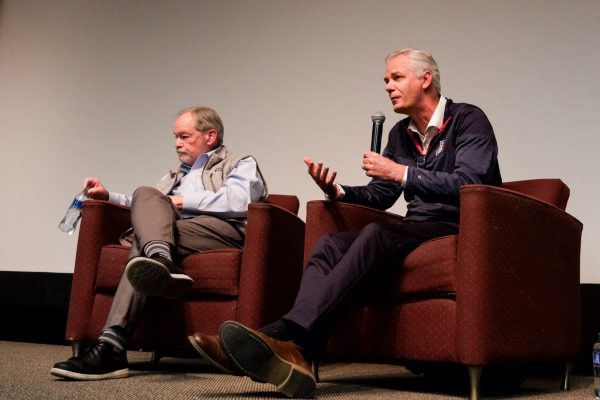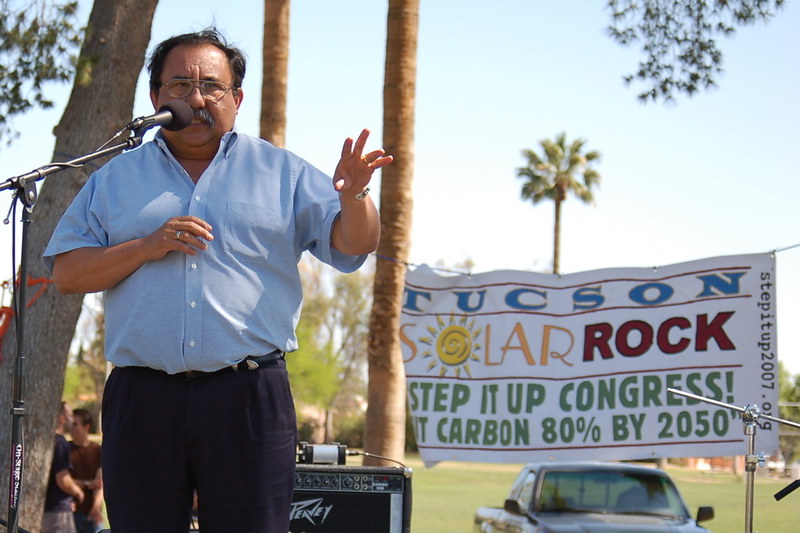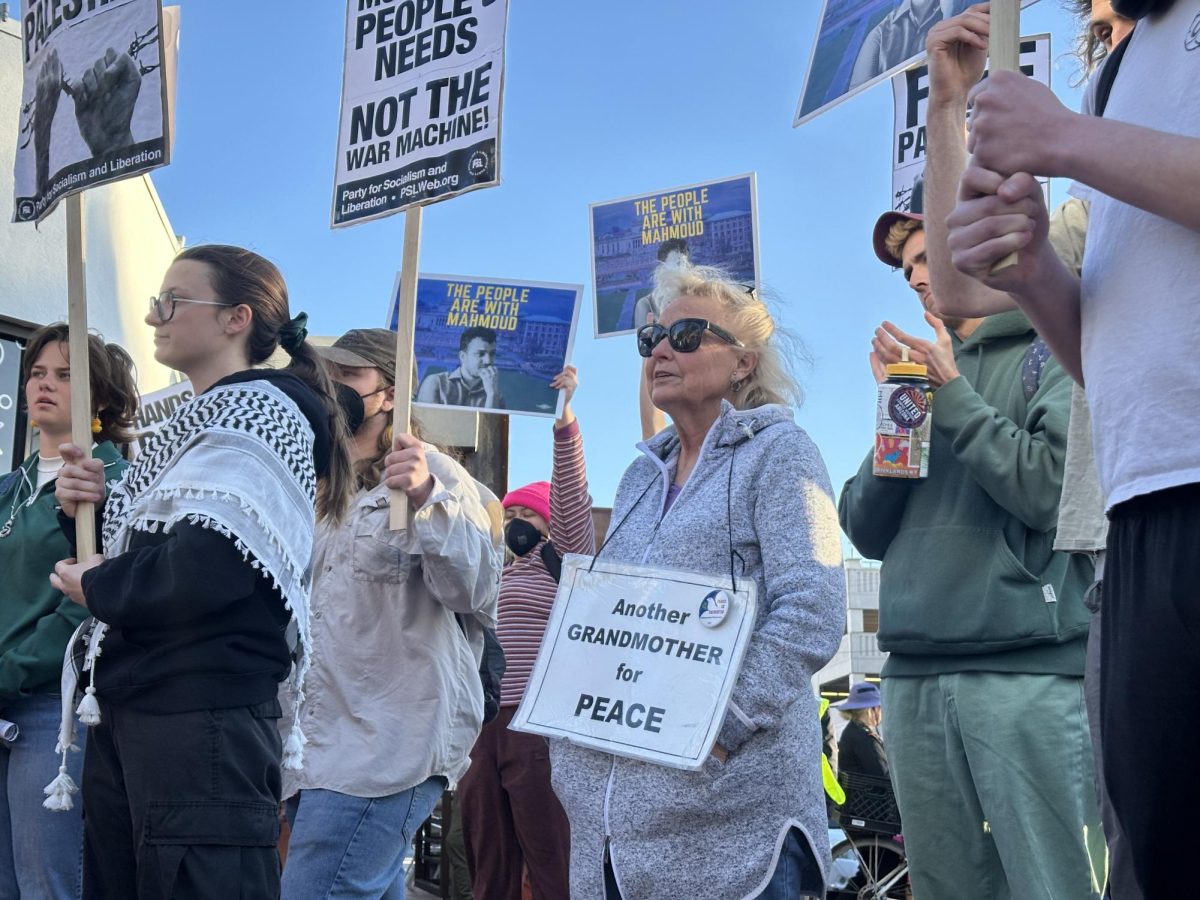The University of Arizona has paused plans to relocate the Office of Enrollment Management after strong student opposition at a Nov. 20 forum. The proposed move, which would have displaced student organizations from the Student Union Memorial Center’s fourth floor, raised concerns about community spaces and essential services.
At the forum hosted by the Associated Students of the University of Arizona, officials acknowledged poor communication and pledged a more collaborative approach in the future.
The relocation would have impacted groups including Asian Pacific American Student Affairs, Fraternity and Sorority Programs, Cultural Inclusive Experiential Learning Opportunities and Survivor Advocacy.
These groups were told that they were being moved on Nov. 12 and had to be out by Nov. 20. Many student organizations shared how concerned students were due to the community they have formed in these spaces.
ASUA initially put out a statement about this move on Nov. 14, just six days before the forum.
The statement read, “ASUA urges senior administration to include students in decisions impacting campus spaces, particularly for organizations providing essential services. No student group should be displaced without clear communication and viable alternatives.”
At the forum, representatives from ASUA, APASA, FSP and Survivor Advocacy were able to speak directly to Provost Ronald Marx and Chief Financial Officer John Arnold about their concerns with this move.
ASUA President Adriana Grijalva started by thanking everyone for joining and addressing the student concerns with moving the Office of Enrollment Management.
Marx followed by apologizing for not considering how this move would affect students and explained why the Office of Enrollment Management was being moved in the first place.
“I just want to say that I personally want to apologize for not doing this more carefully, and I want to talk about how we might proceed down the road with a much more measured and considerate approach to how we need to solve some of our problems,” Marx said.
Marx explained that the Office of Enrollment Management was being relocated to accommodate University President Suresh Garimella’s senior leadership team, including the Provost, in Old Main. The fourth floor of the Student Union provided the necessary space for the relocation of the Office of Enrollment Management.
Marx added that the administration will not be relocating the services to the fourth floor of the Student Union.
“We have come to the conclusion that we need to put a pause on this whole process. We need to go back to the drawing table, look very carefully at the needs, the functional needs of the enrollment management team, find the right kind of space on campus for them, and then work with any groups that might be disrupted, whether it be in the student union or any other place, to make sure that their functions and their work can be carried out in a new location,” Marx said.

Even though the administration halted plans to relocate, they still took the opportunity to address students’ concerns with this decision and learn more about the significance of these services.
Perla Alcaraz is the vice president of Academic Achievement for the United Sorority and Fraternity Council and a member of the Kappa Delta Chi sorority. Alcaraz began the student speech portion of the forum by reading the FSP statement on the impact that the relocation of their offices would have on their community.
“These organizations rely heavily on the FSP office space for chapter advancements, community growth and day-to-day operations. Most of our organizations lack chapter houses or facilities making these shared spaces essential for daily operations. Our council hosts crucial service projects supporting vulnerable communities and organizations,” Alcaraz said.
Students who are a part of APASA continued the forum by sharing the importance of their space.
“The decision to relocate enrollment management into the space where other resource centers resided, was made without adequate consultation with students, and raised concerns about safety, transparency and impact on students who rely on these vital resources, the speed of implementation and construction, particularly during critical study periods, implies a troubling disconnect by the administration for student needs and priorities,” John Piamonte, a representative for APASA, said during the forum.
APASA has been an organization on campus since 1993, and since its inception, it has been relocated four times, the most recent being in 2022. One of these prior moves was caused by the Office of Enrollment Management forcing APASA out of Old Main.
Kaylyn Nean, a member of the Filipino American Student Association, said that her group uses the space for club meetings and that it is a welcoming environment for them.
“A part of it is just being able to walk into the space and also knowing that Asian Pacific Americans or API-like clubs and organizations and people are welcome. Just knowing that there are people here at the school, especially, since it’s a very small minority of us here,” Nean said.
Piamonte said that the space on the fourth floor is significant to APASA because of who they are neighboring.
“This family, however, is not built by APASA alone. It is a result of the intentional coexistence of seven other centers and departments on the fourth floor of the Student Union, many of which are here today together, the shared space is and continues to be a welcoming and accessible resource to all students, staff and users of the space,” Piamonte said.
Lily Arthur, the director of Feminists Organized to Resist, Create and Empower, spoke on the importance of Survivor Advocacy’s location on the fourth floor.
“I cannot emphasize enough how this move will harm the students we work with. Every day, we have students who come into our center in crisis, and right now, we can walk them right down the hallway, and we know that they will have a safe place and the ability to process their trauma with a certified counselor. While it’s true that you aren’t solving the efficacy program by displacing them, there’s no guarantee that they will have access to an equitable space that addresses the specific needs of survivors. Furthermore, it sends the message that survivors don’t deserve to have a central place on campus,” Arthur said.
Holly Thomas is a Ph.D. student at UA. She discussed the importance of giving victims of assault discrete places to report attacks and read a story from a student at the UA.
“When I reported my assault to UAPD, I was forced to recount my traumatic experience in their public lobby, terrified of being overheard by colleagues or students. Imagine having to describe your most painful, intimate violation in a crowded open space where any passerby could hear your story. The indignity was crushing at the Tucson Police Department, I was made to stand in a public line describing my assault through a ticket booth window as casually as if I were buying a movie ticket, stripping away every ounce of my dignity at my most vulnerable moment. The Survivor Advocacy program recognized this fundamental violation, they created a dedicated space for survivors to report their experiences with privacy, compassion and dignity, a sanctuary, hidden in plain sight, accessible to those in need while remaining unremarkable to others,” Thomas said on behalf of a person that would like to remain anonymous.
To conclude the student speeches, Grijalva spoke on behalf of someone from the Survivor Advocacy center.
“As an Asian American woman who has experienced interpersonal violence from a fellow student, someone I am forced to see regularly, I have made the fourth floor of the Union my safe space. It is where I feel protected, supported and understood by the staff at APASA, the WGRC, LGBTQ Plus Center and Survivor Advocacy. I know the people on this floor. I am familiar with the space, and it offers me the privacy and security I need when I discovered that I had back-to-back classes with my oppressor. I worked with Survivor Advocacy [and] APASA, to secure accommodations. The fact that survivor advocacy was located nearby allowed me to address my situation quickly and effectively, to not be told that this vital service is being moved without any consideration for the consequences. It is not only reckless and inconsiderate, it is dangerous,” Grijalva said on behalf of the person who would like to remain anonymous.
The meeting then moved on to a question and answer section in which Provost Marx and Arnold answered questions from students. The decision to move the Office of Enrollment Management from Old Main to the fourth floor of the Student Union was based on several factors.
“We wanted them to remain Central and campus close to parking garages. The concept of Enrollment Management being part of the Student Union was somewhat appealing since these are new students that we’re trying to attract to our campus. We also have a great space in the campus store we retained where we could launch and conclude tours, and there is office space near there where they can speak with parents and stuff right there in the campus store. So functionally, the fourth floor looked like it might be operational,” Arnold said.
Arnold said administrators failed to consider whether the move would impact the student groups currently there.
“Was there sufficient communication? Absolutely not, absolutely not. Was there sufficient feedback? Absolutely not. Did we have a plan for Survivor advocates in place before this got communicated? We did not, and we should have,” Arnold said. “We appreciate the feedback, and as we move forward with space moves, we will take the feedback we’ve gotten here and through this process to build that into any future process we have with any future space moves.”
After the forum ended, Asani Fowler, the co-organizer for a Coalition of Black Students and Allies, talked about the power of student unity and the importance of including their voices in decisions.
“I hope that everyone in this room learned something from this. I think they were probably not expecting as many people to be here today, and because of that, they see that there is power in unity, and they will be a little more hesitant to make such decisions without student input,” Fowler said.
Students are hoping that this forum will be the start of a UA administration that listens more to its community after a past of miscommunication.
















